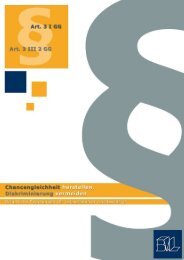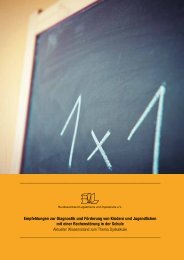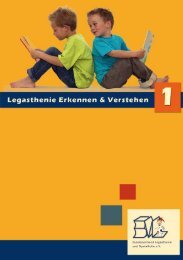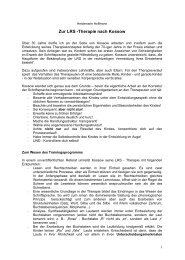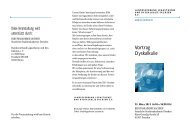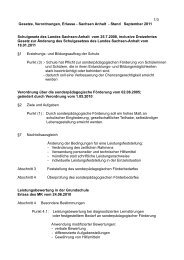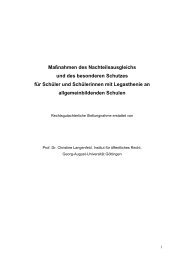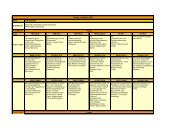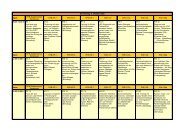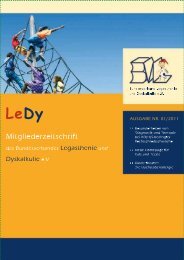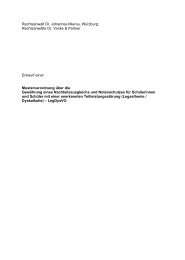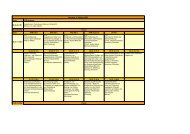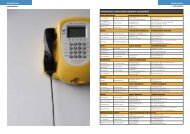Abstractband zum 16. Kongress des Bundesverbandes Legasthenie
Abstractband zum 16. Kongress des Bundesverbandes Legasthenie
Abstractband zum 16. Kongress des Bundesverbandes Legasthenie
Sie wollen auch ein ePaper? Erhöhen Sie die Reichweite Ihrer Titel.
YUMPU macht aus Druck-PDFs automatisch weboptimierte ePaper, die Google liebt.
<strong>16.</strong> <strong>Kongress</strong> <strong>des</strong> Bun<strong>des</strong>verban<strong>des</strong> <strong>Legasthenie</strong> <strong>Abstractband</strong><br />
Reading, Language, Phonology and Intervention<br />
Charles Hulme<br />
University of York, Department of Psychology, York, United Kingdom<br />
There is considerable evidence that learning to read depends critically upon a child’s<br />
language and phonological skills. I will present evidence from a number of recent studies<br />
by our group showing that progress in learning to read aloud (decode) depends critically<br />
upon two foundation skills: access to phonemes in speech and knowledge of lettersounds.<br />
Reading comprehension, in addition depends upon higher-level language skills<br />
including vocabulary knowledge and grammatical skills. These theoretical findings have<br />
implications for interventions to treat and prevent reading failure in children. Recent<br />
intervention studies by our group demonstrate that interventions that target phonemic<br />
skills and letter sound knowledge help to ameliorate decoding problems in children, while<br />
interventions to boost vocabulary and grammatical skills are also effective in boosting<br />
the language skills that are the foundation for reading comprehension skills.<br />
Korrespondenzautor:<br />
Charles Hulme<br />
ch1@york.ac.uk<br />
+44 (0) 1904 433145<br />
The phonological decision task: Testing poor readers’<br />
phonological representations?<br />
Florian Hutzler<br />
University of Salzburg, Department of Psychology, Salzburg, Austria<br />
Phonological deficits are considered causal for dyslexia by most and are attributed to<br />
inaccuracies in phonological representations by some. In the present talk, a phonological<br />
decision task is presented that might allow to test the integrity of phonological representations<br />
within the framework of visual word recognition: Pronounced difficulties were<br />
found in adult poor readers during judging, whether a visually presented, orthographically<br />
unfamiliar letter string sounds like an existing word (thereby constituting a pseudohomophone)<br />
or not (being a pseudoword). These difficulties were disproportionally greater<br />
than expected on the basis of the poor readers’ phonological recoding skills as assessed<br />
by reading aloud of the same type of stimuli. A discussion of the results in terms of the<br />
dual-route cascaded model of visual word recognition reveals the potential plausibility of<br />
the concept of inaccurate phonological representations in poor readers.<br />
Korrespondenzautor:<br />
Florian Hutzler<br />
florian.hutzler@sbg.ac.at<br />
55



